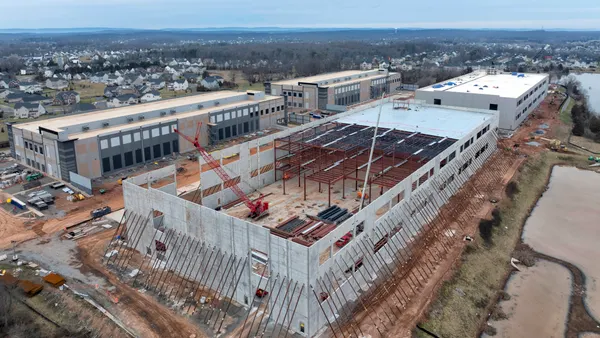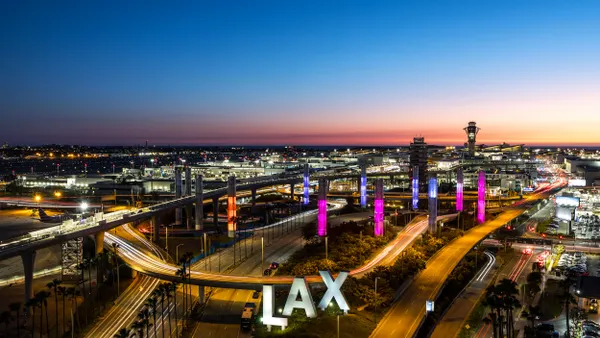Dive Brief:
- Transportation Secretary Elaine Chao has approved the allocation of $768.2 million in emergency funds to be used for road and bridge repair in 40 states, according to The Hill.
- The Federal Highway Administration's Emergency Relief program will reimburse qualifying states for costs associated with storm and natural disaster-related damage. Colorado ($124 million) and California ($105 million) are in line for the biggest shares of funding.
- The U.S. Department of Transportation said this is one of the largest emergency repair grants in the history of the agency.
Dive Insight:
This funding announcement is the first major cash-backed Trump administration initiative that addresses the state of the country's infrastructure. President Donald Trump campaigned on a promise to bring the nation's roads, bridges, ports and other public assets up to par and suggested a $1 trillion plan with few details. However, after the inauguration, infrastructure took the back burner while his administration threw its energy into the unsuccessful repeal of the Affordable Care Act.
During the healthcare push, the rumors were that Trump would postpone action on his infrastructure plan until 2018 or 2019 to focus on other agenda items, but recent reports say he could fast tracked the program along with tax reform legislation.
When Chao spoke to a group of business executives assembled at the White House earlier this month, she told them that she expects the Trump administration to be ready with a new infrastructure bill in May. At the same gathering, Trump told the CEOs in attendance that he would cut red tape to make an easier path for the projects in his program — which could exceed $1 trillion — and would not fund any project that could not begin within 90 days.
The construction industry is waiting to see what Trump and his team will include in the infrastructure measure, particularly because his 2018 proposed budget eliminates key infrastructure initiatives like the Federal Transit Administration's capital investment program and TIGER grants. However, earlier this year, Trump staffers passed around a list of high-priority projects with the names of jobs that the new bill could potentially fund.










